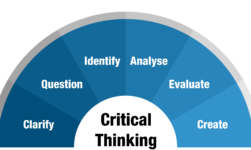
Choosing a career is an important choice that significantly influences our life. Folks commonly question why they gravitate to various occupations or skill sets. While Personal interests, schooling, and daily circumstances contribute to job choices, recent research suggests that genetics may also play a role in our careers. Genetics can influence our career choices and enhance our skills and personal inclinations.
Is Our Career Pre-Determined?
There is much discussion about nature and nurture–fascinating researchers and psychologists. After a long debate, it has now been accepted that genetic and environmental factors play a role in shaping the behaviour of the individual and specific traits. Dominant genes of the parents are expressed in the offspring and strive to better adapt to the environment. Genetics do not directly affect our career –personality, surrounding environment, individual learning and parental growth influence. A better environment can help develop a more skilled mind and shape expertise rather than a stressed environment as it slows learning behaviour.
Are Human Behavior’s Pre-Determined?
In our society, we have encountered people with leadership qualities who are more social and verbally active than introverts. This social behaviour and impact on society depends upon environmental and genetic factors. A recent study on twins’ behaviour showed that intrinsic rather than extrinsic factors influence our career choices. So, genetics plays a part in shaping the nature and behaviour of an individual – which could be affected by the environment. The intelligence trait is hereditary and acquired because it changes with our personality and aligns with particular professions.
How Does Genetics Play a Role in Our Career Choices?
Genetics shows a significant impact on our learning and responsive behavior’s. Recent studies have identified genes related to memory retention, learning aptitudes and cognitive abilities.
For example, the COMT Gene is responsible for the differences in the performance and working responses of the human. This gene is specifically linked with a student’s learning behaviour; the more efficient the gene is, the more crucial the student is towards professions like engineering, doctor and finance. Any change in the mutation may lead to low dopamine production and, thus, more levels of despair.
On the other hand, the DRD2 gene is responsible for motivation and reward-seeking behaviour – thus, student having more DRD2 gene competes more. The DRD2 gene provides receptors for dopamine production. Dopamine is a hormone released by the blood, providing satisfaction, calmness and motivation. Thus, the feeling of excitement and motivation is highly linked with more dopamine production by the DRD2 gene, which influences the choice of a competitive field and a professional career.
The Role of Genetics in Making a Preference Choice for Autonomy:
Many of us have strong decision-making abilities, even during complex situations. Researchers affiliated with The Academic Papers UK have suggested that the ability to make independent decisions is strongly linked to intrinsic factors like an individual’s genetics. The decision power is linked with the dopamine receptor gene that is DRD4, also known as an individual’s adventure gene. This gene influences the social behaviour of a student and creates specific desires for independence and innovation. More variation in this gene may lead to careers that offer freedom, creativity and the ability to work independently. Such persons can quickly adapt to remote jobs like entrepreneurship and freelancing positions.
Can You Risk Your Career?
Genetics of everyone differs from each other because of different parents. So the tolerance and persistence level varies – allowing the persons to interact with each other with different natures and learning behaviour. The MAOA gene influences these behaviours in the hereditary material. MAOA has abbreviated as the Monoamine oxidase A gene linked with an individual’s risk-taking behaviour. Such persons can make more serious life decisions and risk their careers. These persons are more commonly pursuing careers in high-risk industries like extreme sports and investment banking. Also, the DRD2 gene is associated with the perseverance and determination of individuals. The diversification of the gene may draw the career towards resilience and long-term commitments like scientific research and entrepreneurship.
How Do Genetics Play A Pathway Towards Entrepreneurship?
Genetic factors influence critical thinking and play a predisposing role in following Entrepreneurship. Individuals with independence, novelty and risk are likelier to start their businesses. Such genetic traits are combined with environmental factors and personal skills – which drive entrepreneurial qualities and shape career choices.
Is Genetics Playing a Role in Mathematics?
Have you ever heard that there is a role of genetics in calculations? Genetic factors also have an impact on the love for numbers as well as solving mathematical equations. Such persons are highly adapted to pursue careers in the field of Mathematics as well as Statistics. Their genes understand mathematics and numerical reasoning abilities quickly. The ASPM (Assembly factor for spindle microtubules) genes are linked to mathematical proficiency, and such genetic predisposition can influence students to start careers in mathematical fields like accounting, finance etc.
What Factors Are Mainly Influenced By Genetics?
Choosing a career depends upon the preferences and inclinations of the individual, like the healthy or poor environment. There are multifactorial genes that have an impact on nature and individual behaviour. Certain factors are affected by genetic traits like
- Risk Tolerances
- Persistence of an Individual
- Cognitive ability
- Numerical aptitude
It should be noted that genetic factors are not the sole factors for career choices – there are extrinsic factors too. Personal experiences, individual interests and environmental changes significantly contribute to these factors.
Can Career Choice Be Improved?
Understanding the genetics role is compulsory before making valuable insights and deciding about a career choice. It should be remembered that genetics does not limit learning and behaviour choices; there are extrinsic factors too. Career choices can be made better with determination, effort and appropriate training – if not aligned with genetic predispositions.
What Are The Other Factors Than Genetics That Can Influence Career Choice?
While considering the broader aspect of a society, it is essential to consider factors like;
- Cultural expectations
- Socioeconomic status
- Access to opportunities
All these factors impact the career – regardless of an individual’s genetic makeup.
Conclusion:
Genetics can influence our professional choices by impacting learning capacities, autonomy preferences, risk-taking behaviour, tenacity, and numerical aptitude. However, it is critical to understand that genetics is only one puzzle element. Career choices should be treated holistically, considering various aspects such as personal interests, contextual influences, and individual ambitions. Individuals can make informed occupation choices that match their unique qualities and goals – acknowledging the genetic effects and embracing a multidimensional approach.






